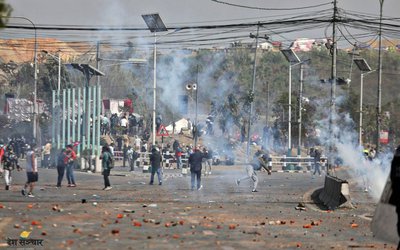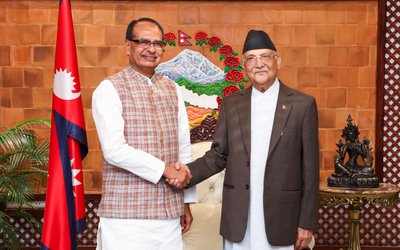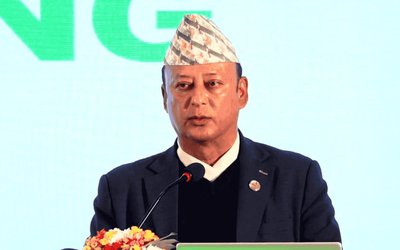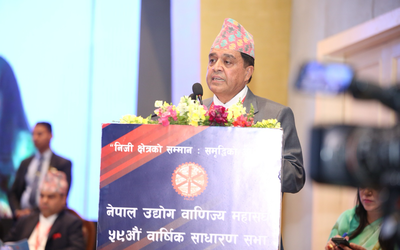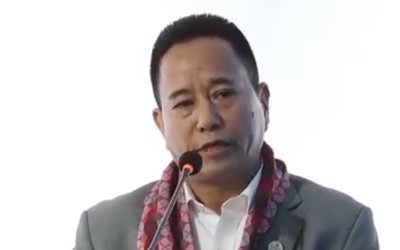As the country was celebrating GBV, 32-year-old Laxmi Pariyar died in a mysterious circumstance in ward number 7 of Bangathali Village Development Committee in Kavrepalanchwok district, 30 kilometers east of capital Kathmandu.
According to the victim's son Suman Pariyar, her mother died following an incident in which a school teacher Hira Lama and his mother fed Pariyar faeces and thrashed her five days ago.
Nabinraj Rai, Deputy Superintendent of Police (DSP) at District Police Office, Kavrepalanchok, said the police were investigating into the case. Police have arrested four people in connection with the incident.
Similarly, Dambara Upadhyaya Tamilsina, 21, of Achham, was found dead when she was sleeping in a Chhaupadi shed- an isolated shed made for menstruating girls and women.
Forty years old Sukmaya Tamang, a resident of Makwanpur district, who is married to an Indian is struggling to secure the citizenship card. The existing law and constitution place conditions in such citizenship.
As Nepal is celebrating 16 days of GBV, these are some incidents that show how Nepalese women have been suffering from violence and legal and constitutional discrimination. Though social activists and NGOs have raised voices against the practice, many women continue to live under the shadow of violence and legal and constitutional discrimination.
“Apart from the local denial to discontinue the tradition, government agencies are mostly responsible for the continuation of such practice and the unfortunate deaths,” said Apsara Kunwar, president of Women Rights Forum, Achham. “The government must take actions to uproot it and, if necessary, take legal course for ending such inhuman practice,” Kunwar said, adding that unless the state becomes responsible women will continue become victims to the tradition.
“The Ministry of Women, Children and Social Welfare is doing its best to raise the voices against GBV. There is a zero tolerance against GBV,” Bishnu Lamsal, secretary at the Ministry told New Spotlight.
According to a report, while Nepal was marking 16 Days of Activism against Gender-Based Violence Campaign from November 25 to December 10 with the theme ‘From Peace in the Home to Peace in the World: Make Education Safe for All’ Informal Sector Service Centre recorded 242 cases of domestic violence.
They include nine rapes, six assaults, five murders, three witchcraft accusations; three attempted trafficking in persons, two child marriages, one attempted rape, two cases of sexual abuse and three of child labor. INSEC said five murders were perpetrated by their own family members.
“Good 2 see wide discussion on gender issues & VAW. All, not just women, should continue 2 speak up orange the world,” twitted British Ambassador to Nepal Richard Morris.
Along with the British Ambassador, American ambassador to Nepal Alaina B. Teplitz twitted,“we put our money where our mouth is: Zero Tolerance project fights gender-based violence. 1/4 of Nepali women exp GBV at least once.” In a tweet, USAmbNepal called for joining gender-based violence (GBV) survivors and young champions in an open dialogue on how to address GBV in schools.
Nepal has made enormous efforts in the last few years to stop the GBV bringing new laws, regulations and policies. The situation is different in reality. Large numbers of women are denied citizenship right, the slow legal and compensation process has denied right of women.
In education, health and development sector, women are given priority and one can see the positive changes. However, they are not alone enough. According to Nepal Demographic and Health Survey-2011, at least one out of every five women experience mental, physical and other forms of violence in their lifetime.
“The policy environment in Nepal for addressing the range of gender issues is increasingly positive. We believe that if you empower women and girls, educate them, build their self-esteem and give them the agency to make decisions, they will be able to achieve the goals they set for themselves and men and boys will also benefit; everyone wins,” writes British Ambassador to Nepal and Gail Marzetti, DFID head, in My Republica.
The Domestic Violence (Crime and Punishment) Act, 2008 states that if the victim so desires, the police officer or local body officer may reconcile the victim and the perpetrator within 30 days from the date of registration of the complaint. However, several cases of domestic violence go unreported due to fear of social stigma.
The 16 Days of Activism against Gender-Based Violence Campaign is taken as a time to galvanize action to end violence against women and girls around the world.
“Our laws and constitution are discriminatory against women. Large numbers of women are denied citizenship rights because of constitutional and legal provisions,” said Laxman Lal Karna, lawyer and co-chair of Sadbhvana Party.
Although Nepal’s parliament building is painted in orange to express solidarity with the campaign against GBV and women activists, and Kathmandu-based foreign diplomats as well as the government are involved in the campaign to raise the voices against the GBV, the situation has not changed much.

Keshab Poudel
Poudel is the editor of New Spotlight Magazine.
- POLITICAL VIOLENCE: Culture of Impunity
- Apr 11, 2025
- PM OLI MEETS PM MODI: No Progress
- Apr 09, 2025
- PM OLI’S THAILAND VISIT: Flip Flop
- Apr 08, 2025
- FM Dr. Deuba’s India Visit: Mission Aborted
- Mar 26, 2025
- AMBASSADOR MAEDA TORU: Warm Regards
- Mar 24, 2025
